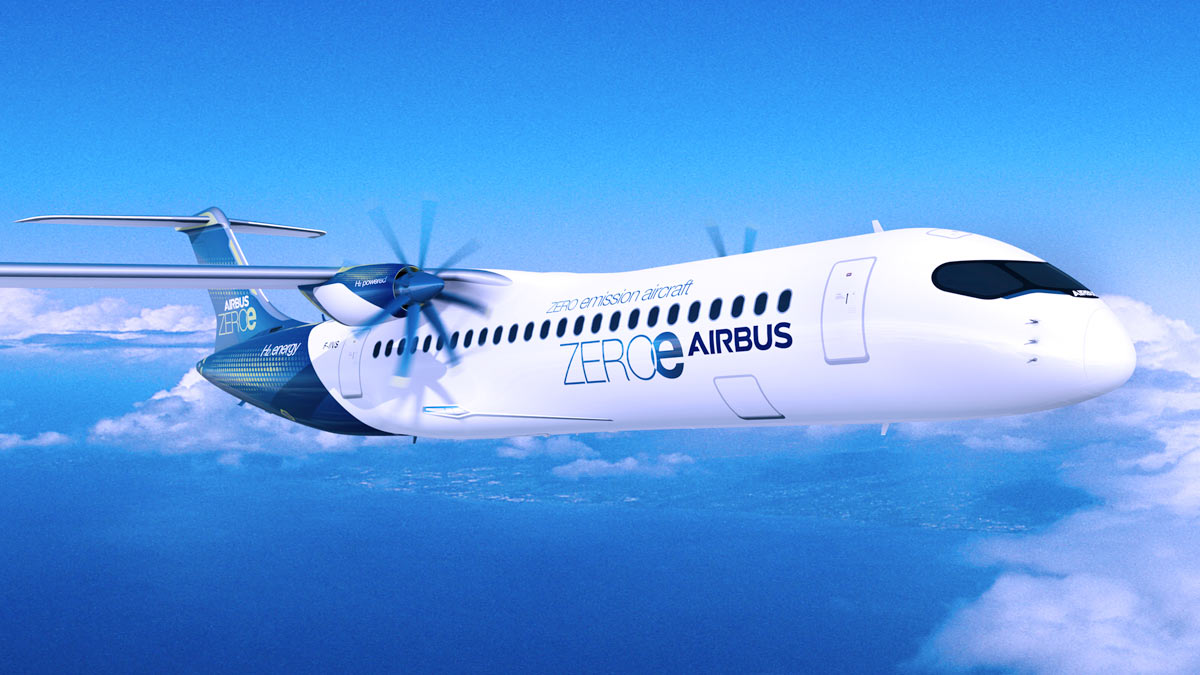Fortescue Future Industries says it wants to speed up the development of aircraft fuelled by green hydrogen, as part of a push to decarbonise the aviation industry, forming a new partnership with European aircraft giant Airbus.
The clean energy unit of resources giant Fortescue Metals Group signed the MoU with Airbus on Tuesday to cooperate on the development of zero emissions aircraft, fuelled by hydrogen.
The partnership will see the two companies identify the needs and potential boundaries to the use of green hydrogen as an aircraft fuel, covering government regulation, necessary infrastructure and how to best establish global supply chains.
According to a joint statement, FFI will provide technical expertise on the development of the necessary hydrogen supply chains, and Airbus will focus on assessing the energy needs and fuelling requirements of the aviation industry, as well as the aviation regulatory environment.
Fortescue founder Dr Andrew Forrest said the aviation industry was responsible for a significant proportion of global greenhouse gas emissions, and had so far proven elusive in decarbonisation efforts.
“The time is now for a green revolution in the aviation industry. This exciting collaboration brings together leaders in the aviation industry with leaders in green energy for a pollution-free future,” Forrest said.
“People want to travel, reunite with family and friends and explore new places without being forced to pollute the planet. The problem isn’t travel, the problem is how we fuel our planes and ships – all of that must turn emissions free. No greenwash, no mirage, just 100 per cent green.”
The aviation industry is responsible for around 2.5 per cent of global greenhouse gas emissions, but as yet, no readily available alternative to conventional fossil-fuel based aviation fuels has achieved wide-scale adoption.
Forrest added that he saw the recent devastating floods impacting parts of New South Wales and Queensland as underscoring the need to cut greenhouse gas emissions and their contribution to climate change.
“Look no further than my home country of Australia to see the disasters of our changing environment,” Forrest added.
“Australia’s climate has already warmed on average by almost 1.5°C since 1910, and these extreme events are going to occur more frequently if industry doesn’t come together to decarbonise quickly and completely.”
“I ask those remaining institutions who continue to invest in fossil fuels to think of their kids. In particular, those so-called entrepreneurs who are supporting fossil fuel assets, please consider your children’s future over your profits.”
Airbus has unveiled a number of zero emissions aircraft concepts and is hoping to launch its first hydrogen-fuelled commercial aircraft by 2035.
The company says that green hydrogen could be used through two key methods for reducing aviation emissions, including as an input in the production of synthetic fuels for use in current aircraft, as well as for direct use in next-generation aircraft using modified turbines and fuel cells.
Airbus Vice President for zero emissions aircraft, Glenn Llewellyn, said the company viewed the future of the aircraft industry as one fuelled by green hydrogen.
“Airbus has identified green hydrogen as the most promising option for decarbonisation to meet our environmental challenges. You heard it here first: We are starting the green aviation revolution,” Llewellyn said.










